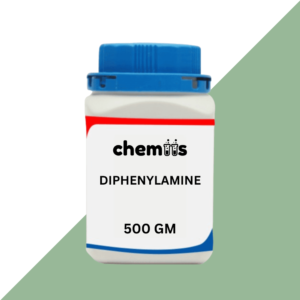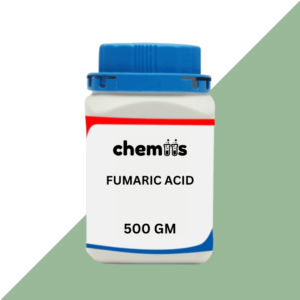L-Glutamic Acid is an essential amino acid widely recognized for its numerous applications in the food industry, pharmaceuticals, and scientific research. As a naturally occurring amino acid, L-Glutamic Acid plays a crucial role in metabolism and is known for its ability to enhance flavors, particularly as monosodium glutamate (MSG). In addition to food-related uses, L-Glutamic Acid is employed in a range of other industries including health supplements, therapeutic applications, and biochemical research.
Applications of L-Glutamic Acid
- Food Industry:
- Flavor Enhancement (MSG):
L-Glutamic Acid is the primary building block for Monosodium Glutamate (MSG), a widely used flavor enhancer in the food industry. It imparts an umami taste, which is one of the five basic tastes alongside sweet, salty, bitter, and sour. MSG is added to a variety of processed foods, snacks, soups, and seasonings to boost flavor and improve the overall taste experience. - Seasoning Additives:
L-Glutamic Acid is used directly in seasoning blends and in the production of soy sauce, soups, and broths. Its natural umami flavor adds depth and complexity to food products.
- Flavor Enhancement (MSG):
- Pharmaceutical and Health Applications:
- Dietary Supplements:
L-Glutamic Acid is a key ingredient in many dietary supplements aimed at improving cognitive function and brain health. It serves as a precursor for the synthesis of other amino acids and neurotransmitters like GABA (gamma-aminobutyric acid), which has a calming effect on the nervous system. - Medical Uses:
It plays a role in various therapeutic treatments, particularly in nerve regeneration, tissue repair, and immune system support. Glutamic acid derivatives are sometimes used in managing neurological conditions, such as Alzheimer’s and Parkinson’s disease. - Sports Nutrition:
L-Glutamic Acid is utilized in sports nutrition for promoting recovery after exercise, as it aids in protein synthesis and muscle repair.
- Dietary Supplements:
- Biochemical and Laboratory Research:
- Neurotransmitter Research:
L-Glutamic Acid is extensively studied in biochemical research due to its role in neurotransmission. It is the most abundant excitatory neurotransmitter in the brain, making it a critical compound for studies on neural functions, brain activity, and diseases affecting the central nervous system. - Cell Culture and Media Supplementation:
L-Glutamic Acid is often added to cell culture media to promote growth and support cell division in various scientific experiments. - Metabolic Pathway Studies:
As an integral component of the Krebs cycle, L-Glutamic Acid is used in metabolic studies focusing on energy production and amino acid biosynthesis.
- Neurotransmitter Research:
- Cosmetic Industry:
- Skin Care Formulations:
L-Glutamic Acid is sometimes included in cosmetic products for its antioxidant properties, which help protect the skin from oxidative stress and promote skin health. It also plays a role in skin hydration and anti-aging treatments.
- Skin Care Formulations:
- Animal Feed and Agriculture:
- Feed Additive:
L-Glutamic Acid is used in animal feed to enhance growth and health, particularly in poultry and livestock. It helps improve nutrient absorption and enhances the overall well-being of animals in agricultural settings.
- Feed Additive:








Kavita Nair (verified owner) –
Product arrived on time.
Ishaan Nayak (verified owner) –
Very helpful support team.
Meera Kapoor (verified owner) –
Very helpful support team.
Payal Kamat (verified owner) –
Satisfied with the results.
Lavanya Jain (verified owner) –
Item delivered safely.
Harshit Reddy (verified owner) –
Worth every rupee.
Reema Das (verified owner) –
Hassle-free experience.
Ankur Tyagi (verified owner) –
Amazing value for money.
Priya Sharma (verified owner) –
Very professional service.
Chirag Vora (verified owner) –
No leakage or damage.
Kripa Mehta (verified owner) –
Products are exactly as described.
Tushar Kohli (verified owner) –
Website is easy to navigate.
Reema Das (verified owner) –
Secure payment options.
Isha Roy (verified owner) –
Delivered safely and quickly.
Kripa Mehta (verified owner) –
Exactly as shown.
Shruti Bhandari (verified owner) –
Perfect for my needs.
Divya Raut (verified owner) –
Very happy with the order.
Nivedita Gopal (verified owner) –
Reliable supplier.
Harshit Reddy (verified owner) –
Received in good time.
Deepansh Bedi (verified owner) –
Very dependable delivery.
Simran Gill (verified owner) –
Great for science students.
Kusum Kumari (verified owner) –
Very fast delivery.
Ananya Joshi (verified owner) –
Bulk order handled perfectly.
Alka Dey (verified owner) –
Clear product details.
Yash Chatterjee (verified owner) –
Neat and secure packaging.
Siddharth Dasgupta (verified owner) –
No complaints at all.
Dinesh Bhardwaj (verified owner) –
Product matches the description.
Meera Kapoor (verified owner) –
Just as expected.
Chirag Vora (verified owner) –
Support team is very polite.
Meera Kapoor (verified owner) –
Item delivered safely.
Isha Roy (verified owner) –
Item delivered safely.
Vipin Giri (verified owner) –
Professional service.
Jayant Mishra (verified owner) –
No leakage or damage.
Pranav Agarwal (verified owner) –
Nicely organized website.
Nandini Kaul (verified owner) –
Efficient and reliable.
Suraj Barman (verified owner) –
Honest and transparent.
Neha Kaur (verified owner) –
Received in good time.
Ankur Tyagi (verified owner) –
Worth every rupee.
Aditya Rawat (verified owner) –
Very well worth the money.
Sameer Patel (verified owner) –
Great for lab use.